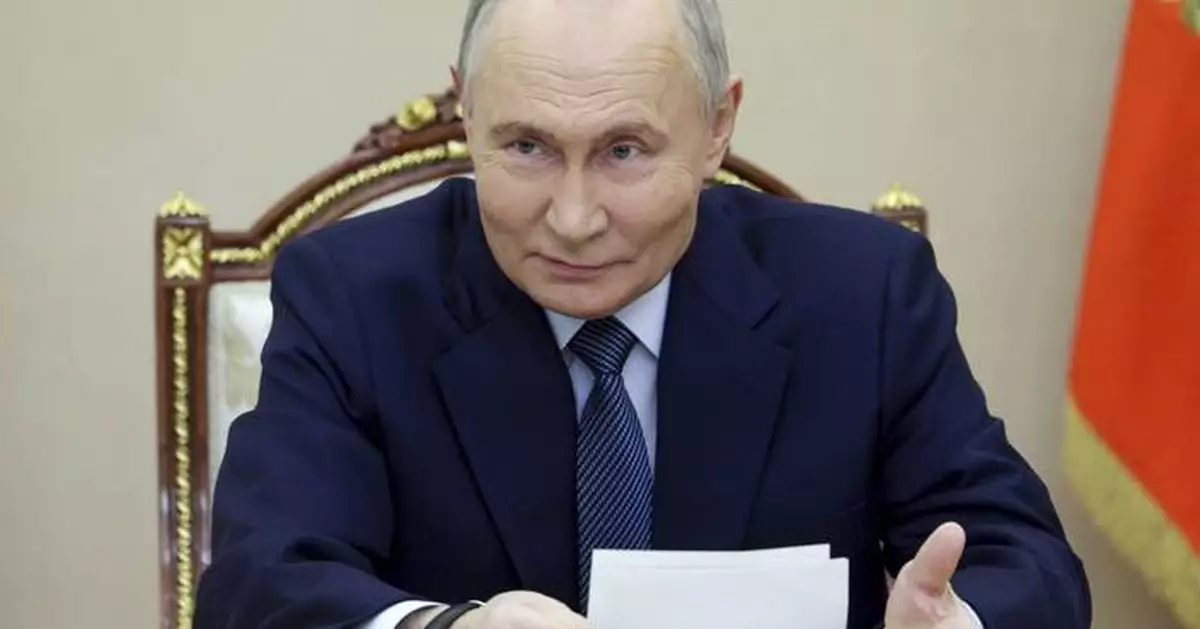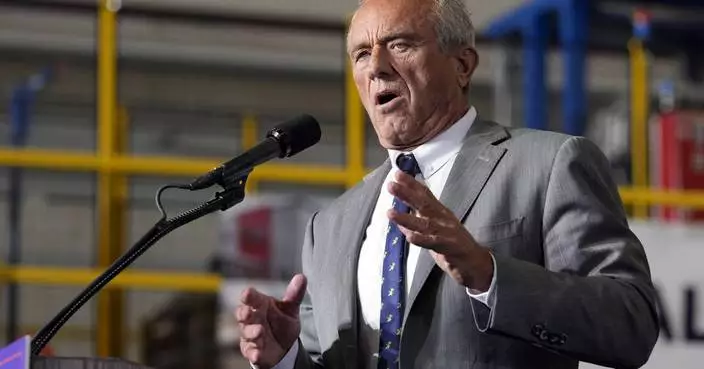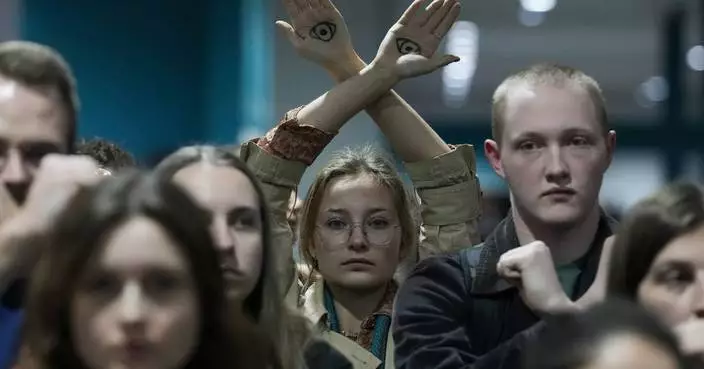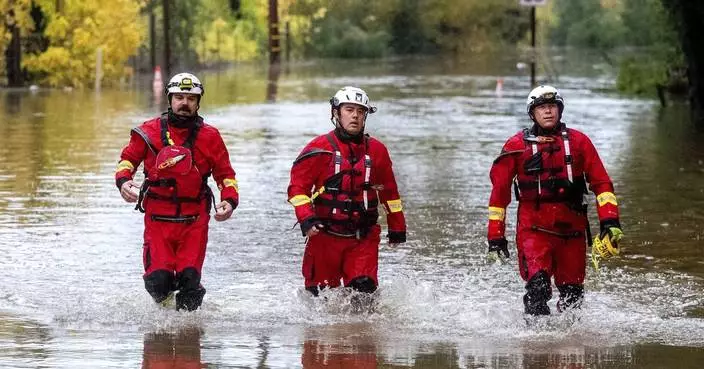Russian President Vladimir Putin on Saturday signed into law a bill banning adoption of Russian children by citizens of countries where gender transitioning is legal.
The Kremlin leader also approved legislation that outlaws the spread of material that encourages people not to have children.
The bills, which were previously approved by both houses of Russia’s parliament, follow a series of laws that have suppressed sexual minorities and bolstered longstanding conventional values.
Russian lower house Speaker Vyacheslav Volodin, who was among the new bill’s authors, said in a Telegram post in July that “it is extremely important to eliminate possible dangers in the form of gender reassignment that adopted children may face in these countries.”
The adoption ban would apply to at least 15 countries, most of them in Europe, and Australia, Argentina and Canada. Adoption of Russian children by U.S. citizens was banned in 2012.
Other bills approved Saturday ban what they described as propaganda for remaining child-free and impose fines of up to 5 million rubles (about $50,000). Its proponents contended that public arguments against having children are part of purported Western efforts to weaken Russia by encouraging population decline.
Putin and other top officials in recent years have increasingly called for observing so-called traditional values as a counter to Western liberalism. As Russia’s population declines, Putin has made statements advocating large families and last year urged women to have as many as eight children.
Russia last year banned gender-transition medical procedures and its Supreme Court declared the LGBTQ+ “movement” to be extremist.
In 2022, Putin signed a law prohibiting the distribution of LGBTQ+ information to people of all ages, expanding a ban issued in 2013 on disseminating the material to minors.
Since he sent troops into Ukraine in February 2022, the Kremlin leader has repeatedly characterized the West as “satanic” and accused it of trying to undermine Russia by exporting liberal ideologies.
Independent journalists, critics, activists and opposition figures in Russia have come under increasing pressure from the government in recent years, intensifying significantly amid the conflict in Ukraine. Hundreds of nongovernmental groups and individuals have been designated as a “foreign agent” — a label that implies additional government scrutiny and carries strong pejorative connotations.
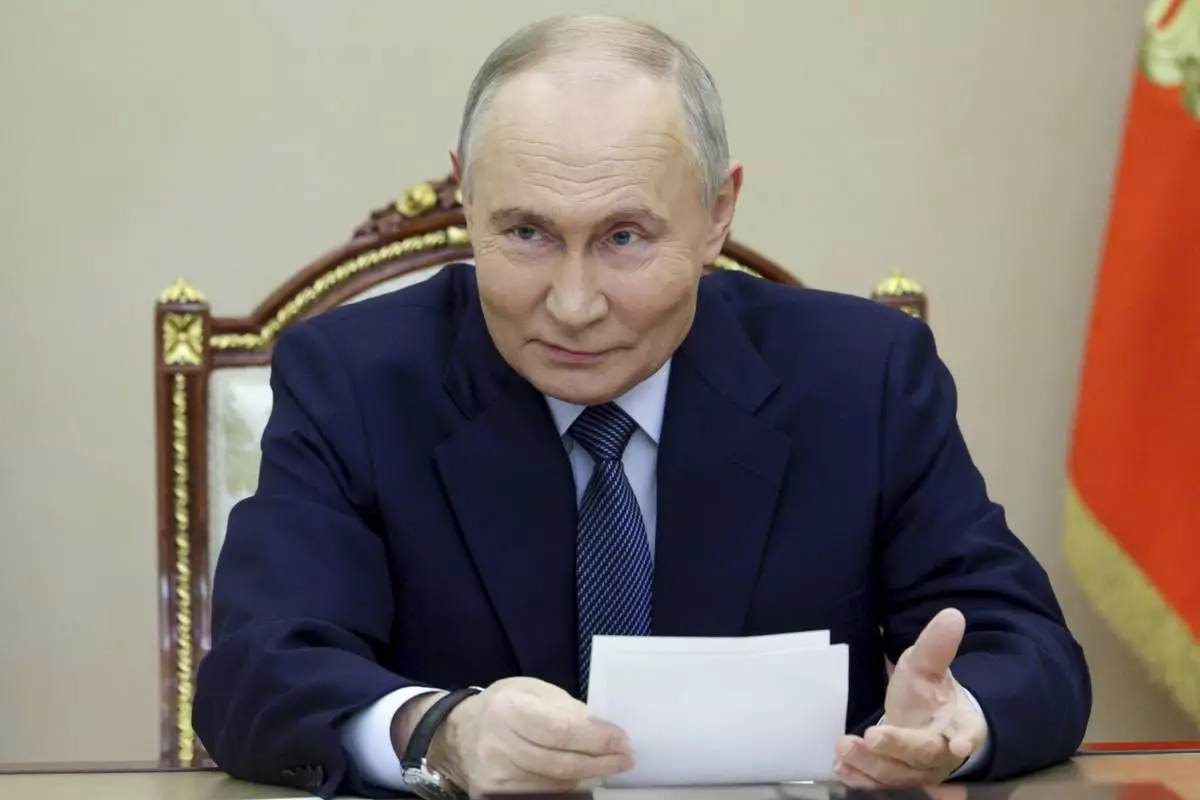
Russian President Vladimir Putin speaks during a meeting with the leadership of the Russian Ministry of Defense, representatives of the military-industrial complex and developers of missile systems at the Kremlin in Moscow, Russia, Friday, Nov. 22, 2024. (Gavriil Grigorov/Sputnik, Kremlin Pool Photo via AP)
HALIFAX, Nova Scotia (AP) — A Canadian security forum on Saturday presented an award to Vladimir Kara-Murza, a Kremlin critic and Pulitzer Prize-winning writer who was freed from prison earlier this year in a massive prisoner exchange.
The Halifax International Security Forum presents the award annually in honor of U.S. Sen. John McCain, who died in 2018, to “individuals from any country who have demonstrated uncommon leadership in the pursuit of human justice.”
The forum attracts military officials, United States senators, diplomats and scholars.
“I am humbled beyond words to be receiving this prize, but I view it first and foremost as your recognition of all my fellow Russian citizens who have the courage to stand up to Putin's regime and to call out his murderous war in Ukraine in full knowledge what the price of that will be,” Kara-Murza said.
McCain was a regular at the forum and his son, Jack McCain, presented Kara-Murza with the award.
Kara-Murza was a pall bearer at McCain's funeral. “It was described as his last dig at Vladimir Putin,” Jack McCain said.
Kara-Murza was freed in the massive prisoner exchange earlier this year with the West — the largest since the Cold War. He had been imprisoned in Russia since April 2022 and was convicted of treason for denouncing the war in Ukraine.
He rose to prominence as a journalist and did columns as a contributor for The Washington Post from his prison cell. He won the Pulitzer Prize for commentary earlier this year.
In 2015 and 2017, he suffered two near-fatal poisonings and developed polyneuropathy, a condition that deadens the feeling in his limbs. He blamed the poisonings on Russian authorities.
Kara-Murza rejected the charges against him as punishment for standing up to Putin.
The security forum will also honor former Taiwan leader Tsai Ing-wen with the McCain award that was announced in 2021. She could not attend then.
During Tsai’s two terms, which ended in May, she came under relentless attack from China for her refusal to concede to Beijing’s demands that Taipei recognize China’s sovereignty over it.
Past winners of the John McCain Prize for Leadership in Public Service have included the people of Hong Kong for their “fight for their rights in the face of oppression from the government of China” and the people of Lesbos, Greece, “for their valiant actions to rescue refugees fleeing conflict in the Middle East.”
A Navy pilot, John McCain was shot down over North Vietnam in 1967. He was captured, beaten and held prisoner for more than five years, refusing to be released ahead of other American servicemembers.
“Like Senator McCain, Kara-Murza was willing to stand up for his beliefs even if it came at the price of his freedom,” said Peter Van Praagh, the President of the Halifax International Security Forum.
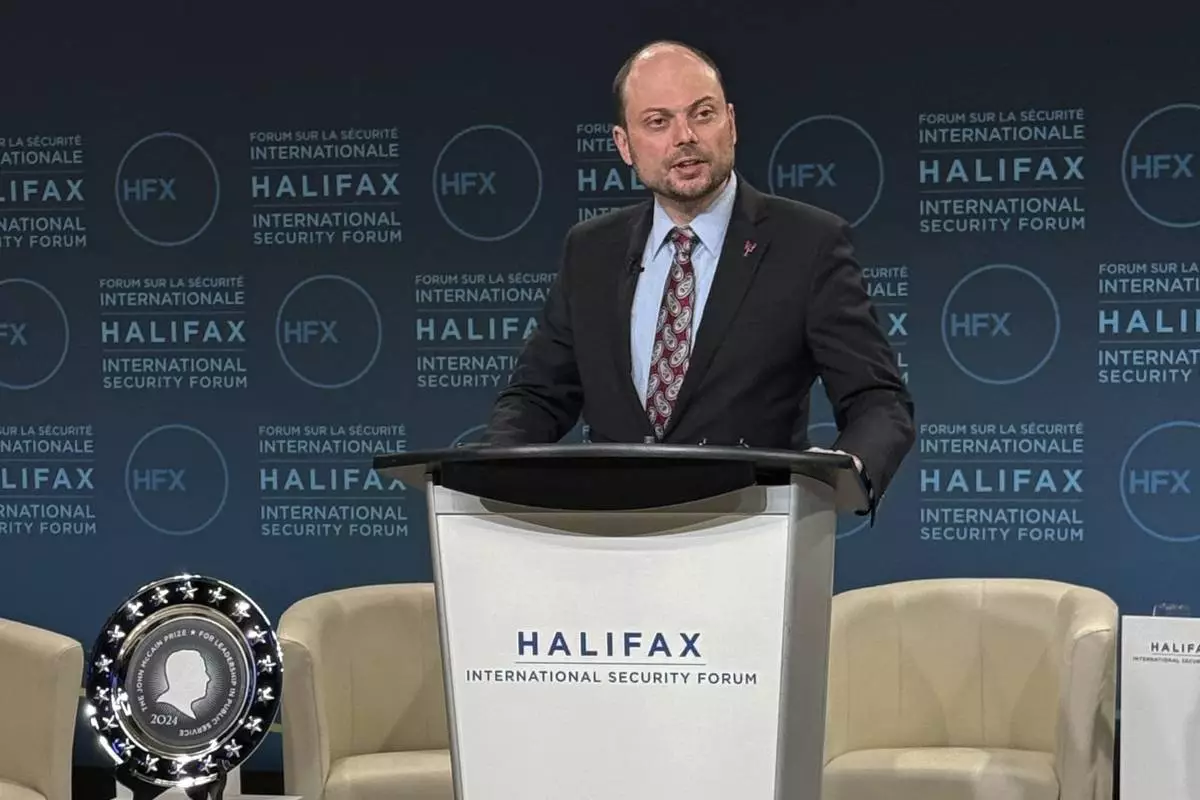
Vladimir Kara-Murza, a Kremlin critic and Pulitzer Prize-winning writer speaks at The Halifax International Security Forum on Saturday, Nov. 23, 2024 in Halifax, Nova Scotia Canada. (AP Photo/Rob Gillies)



